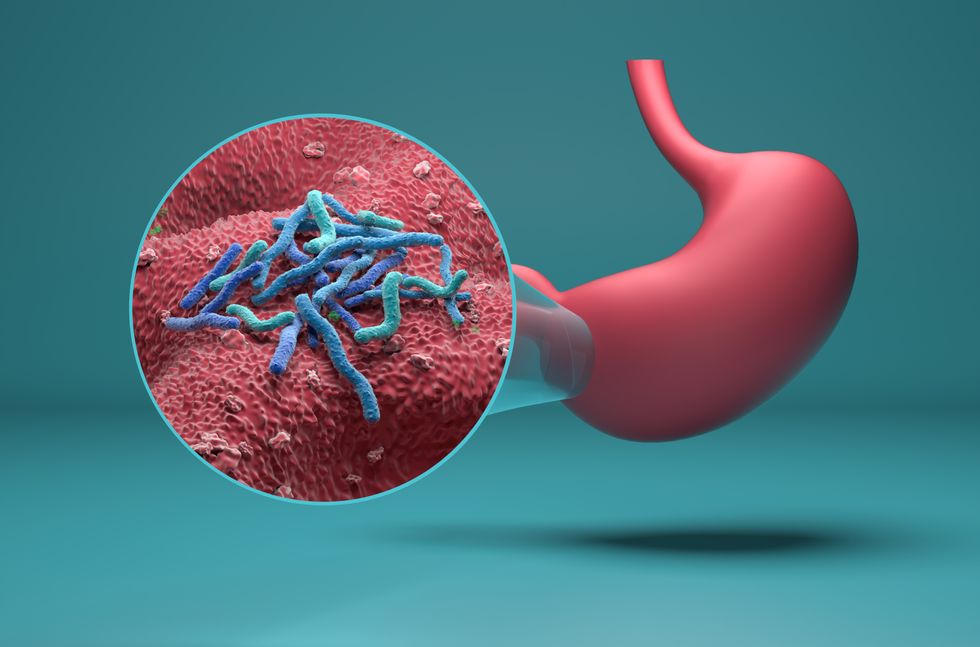'Wake-up call' for millions over risk factor behind 76% of stomach cancer cases - 'Not smoking or alcohol'
The latest discovery has been dubbed a 'wake-up call' by doctors, who have called for pre-emptive intervention in preventable deaths by the disease
Don't Miss
Most Read
A broad array of lifestyle factors can play into a potential cancer diagnosis, which is why it is so crucial to pay attention to tendencies like smoking, drinking and the nature of your wider diet.
However, scientists have issued a fresh warning that 76 per cent of stomach cancer cases globally are caused by the common bacterium Helicobacter pylori, with researchers predicting approximately 12 million cases among people born between 2008 and 2017.
The research, published in Nature Medicine, found that nearly 16 million individuals from this age group are expected to develop gastric cancer during their lifetime, with three-quarters of these cases attributed to H. pylori infection.
Medical experts have dubbed the findings a crucial "wake-up call" for addressing what they describe as a preventable form of cancer.

The scientists have demanded targeted screening programmes to catch the infection early
|GETTY
As a result, the research underlined the urgent need for targeted screening programmes and further efforts to develop vaccines against the bacterium, which often causes no symptoms despite its fatal potential.
The study projects that approximately 8 million of the H. pylori-related cancer cases will occur in Asia, with another 1.5 million predicted across North and South America. Researchers noted their findings may help explain the recent rise in gastric cancers among younger people.
The scientists emphasised that whilst a vaccine against H. pylori "would be a powerful tool for gastric cancer prevention," there appears to be "little momentum at present to advance its development".
Anton Bilchik, a surgical oncologist at Providence Saint John's Cancer Institute in California, called it "a fascinating, practice-changing study", adding: "This tells us that it is a preventable cancer."
Bilchik, who attended the 1991 presentation of the original research linking H. pylori to stomach cancer, said the findings were dismissed by the medical community at first.
LATEST DEVELOPMENTS
"This is a clear message to both patients and professionals that stomach cancer is not necessarily caused by smoking and alcohol," he said.
Stanford University professor Joo Ha Hwang described the research as "a call to action to address a preventable cancer".
Professor of medical oncology at the University of California San Francisco Alan Venook added that, while the connection between H. pylori and gastric cancer has been known for more than 30 years, he is "mystified" as to why progress hasn't been made.
"The most interesting thing in this study to me is that this is still a problem," Venook said. "I think the message to medical professionals is that this remains a terrible problem. This is a wake-up call."
H. pylori bacteria typically develop in the stomach during childhood and can be transmitted through saliva and contaminated food. While many infected individuals experience no symptoms, around 30 per cent develop peptic ulcers and other conditions.

The infection can be transmitted through saliva and contaminated food
|GETTY
Common symptoms include burning stomach pain, feeling full quickly, nausea, burping and unexplained weight loss. The bacteria can be diagnosed through breath tests, stool samples, blood antibodies or endoscopy procedures.
Currently, there are no routine stomach cancer screening recommendations for those with average risk in the United Kingdom, according to Cancer Research UK.
Experts recommend several strategies for reducing stomach cancer risk, with Hwang advising that "if one family member is diagnosed with H. pylori, family members who live together should be tested for the infection".
He particularly advocated testing for "individuals who have immigrated from regions that have a high incidence of H pylori infection and gastric cancer, such as East Asia, Eastern Europe, and the west coast of South America".
Bilchik urged people not to ignore persistent gastrointestinal symptoms, urging: "If the symptoms are persistent, then go to a physician and be proactive."
If you are concerned about any symptoms that you might be experiencing, please consult your GP or equivalent medical professional for further guidance.











